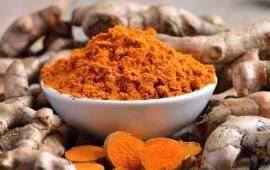The green tea contains large amounts of the catechin: epigallocatechin gallate or EGCG.
This catechin EGCG has the ability to inhibit tumor stem cells in breast, lung, prostate, pancreatic, liver and cervical cancer, as demonstrated by studies published in recent years.
There are several mechanisms involved in the therapeutic action of EGCG in cancer.
Green tea EGCG has pro-oxidant, anti-inflammatory, cell cycle modulating, angiogenesis inhibitory properties and induces apoptosis or cell death.
Among its metabolic actions, Green tea has been shown to have the ability to inhibit glucose metabolism.
In a study published last year in USA, at the University of California they showed that the ECGC in green tea could decrease the growth of pancreatic cancer cells and that this effect was greater if the tumor cells were low in glucose. In addition, it could help gemcitabine increase its cytotoxic activity on pancreatic cancer cells.
Cancer and the Akt signaling pathway
Pancreatic cancer activates a signaling pathway called Akt, which plays an important role in the growth of pancreatic tumor cells. It has also been proven to him that activation of the Akt pathway is frequently activated in metastatic cancer, being one of the main regulatory pathways of metastasis. Moreover, its activation is related to resistance to chemotherapy treatments. For this reason, immunotherapy aimed at inactivating the Akt pathway is being investigated.
Researchers at the University of California demonstrated that EGCG from green tea inhibits the Akt pathway.
In colon cancer, EGCG from green tea, has the property of inhibiting tumor stem cell formation and proliferation.
Scientific studies on the antitumor effect of green tea EGCG
- Lee HW et al. (2024) EGCG-induced selective death of cancer cells through autophagy-dependent regulation of the p62-mediated antioxidant survival pathway. Biochim Biophys Acta Mol Cell Res. 2024 Mar;1871(3):119659. doi: 10.1016/j.bbamcr.2024.119659. Epub 2024 Jan 11. PMID: 38216089.
- Kciuk M, Alam M et al (2023). Epigallocatechin-3-Gallate Therapeutic Potential in Cancer: Mechanism of Action and Clinical Implications. Molecules. 2023 Jul 6;28(13):5246. doi: 10.3390/molecules28135246. PMID: 37446908; PMCID: PMC10343677.
- Agarwal A, Kansal V et al. (2023). Epigallocatechin Gallate (EGCG), an Active Phenolic Compound of Green Tea, Inhibits Tumor Growth of Head and Neck Cancer Cells by Targeting DNA Hypermethylation. Biomedicines. 2023 Mar 5;11(3):789. doi: 10.3390/biomedicines11030789. PMID: 36979768; PMCID: PMC10045148.
- Alam M, Ali S, Ashraf GM, et al (2022). Epigallocatechin 3-gallate: From green tea to cancer therapeutics. Food Chem. 2022 Jun 15;379:132135. doi: 10.1016/j.foodchem.2022.132135. Epub 2022 Jan 11. PMID: 35063850.
- Tauber AL, Schweiker SS et al. (2020). From tea to treatment; epigallocatechin gallate and its potential involvement in minimizing the metabolic changes in cancer. Nutrition Research. Volume 74, February 2020, Pages 23-36 doi.org/10.1016/j.nutres.2019.12.004
- Kozue Namiki, Pattama Wongsirisin et al. (2020) Epigallocatechin gallate inhibits stemness and tumourigenicity stimulated by AXL receptor tyrosine kinase in human lung cancer cells. December 2020. Scientific Reports. DOI: 10.1038/s41598-020-59281-z
- Sabrina Bimonte , Marco Cascella et al. (2020). Current shreds of evidence on the anticancer role of EGCG in triple negative breast cancer: an update of the current state of knowledge. Infectious Agents and Cancer (2020) 15:2. doi.org/10.1186/s13027-020-0270-5
- Kayla L. Steed, Harrison R. Jordan et al. (2020). SAHA and EGCG Promote Apoptosis in Triple-negative Breast Cancer Cells, Possibly Through the Modulation of cIAP2. Anticancer Res. 2020 January ; 40(1): 9-26. doi:10.21873/anticanres.13922.




